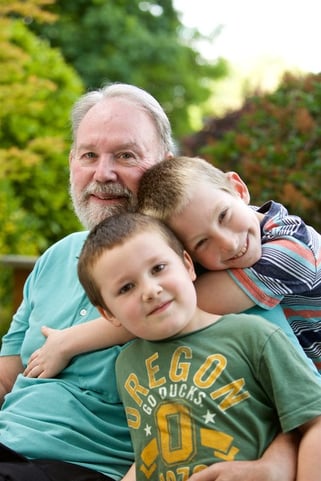Those of us with traumatic SCIs or delayed onset of disease live with everyday irony. From the moment we become paralyzed, we begin a journey of coping with the loss of who we once were while searching for a new way to go forward — a kind of tug of war pulling us in opposite directions at the same time.

It is not easy to accept that we are no longer the same person we used to be while starting the process of building a new life. Often our worst enemy is denial, which ultimately proves to be futile. But ironically, denial can also be — for a period, at least — helpful in surviving the onset of despair and loss of hope. So it is that we begin our paralysis journey with tension, anxiety, and uncertainty.
On the one-year anniversary of the plane crash that paralyzed me, I decided to celebrate the date as a day of rebirth. That practice has stuck with me for 58 years, and on some of those occasions, I was in no mood to celebrate. My latest anniversary was one of those times. For the past nearly five months, I have been stuck in bed at home, unable to drive or go anywhere, with home care nurses coming three times a week to help my wife with the thankless job of managing my wound care. The “wound” was not a pressure ulcer. It was the result of an emergency operation that removed a badly infected abscess that had quietly built for several months, if not longer.
Finally, as my 58th anniversary approached, my wound care nurse announced that the wound was just a few days from closing and being completely healed. But one detail was troubling. The wound was still draining even though it was tiny. On the day of my anniversary, I found myself lying on an exam table for a wound inspection. Then came the bad news. My doctor told me the wound would never completely close unless the source of the drainage — a urethral fistula — could be removed or repaired. I would need another major operation with weeks and perhaps months more downtime in bed. More fear, anxiety, and uncertainty.
The truth of our lives is that no matter how hard we try, we cannot go backward in time prior to the onset of paralysis and “pick up where we left off” — as if our bodies and abilities have not changed. In my case, and possibly yours as well, a catastrophic complete SCI has altered my anatomical nature — not only my nerves and muscles, but also my bladder, bowels, genitals, digestive tract, metabolism, skin integrity, blood circulation and more. Even my subconscious.
At times like these, when our plans and dreams, our daily lives, have once again been put on hold, we have to find a way to suck it up and go forward. Keeping a hopeful attitude is not easy and can sometimes seem impossible, so it is extremely important to draw on all the resources we have available, and even search for new resources. In other words, we cannot do it by ourselves.
In the past few days, I have found it very helpful to talk by phone with friends who have longstanding paralysis like mine about what lies before me, before us. Our peers are absolutely invaluable to keeping our spirits up. Many of us are going through similar trials, and when we talk with each other, we can share stories, memories, information, possibilities.
And one more thing: In the midst of a good long conversation, remembering all the disappointments over the years, something wonderful happens: We laugh. Like soldiers hunkered down in foxholes, we let our wartime humor — darkly comical — hold sway. We curse the gods of fate, say what the hell, and charge forward.

